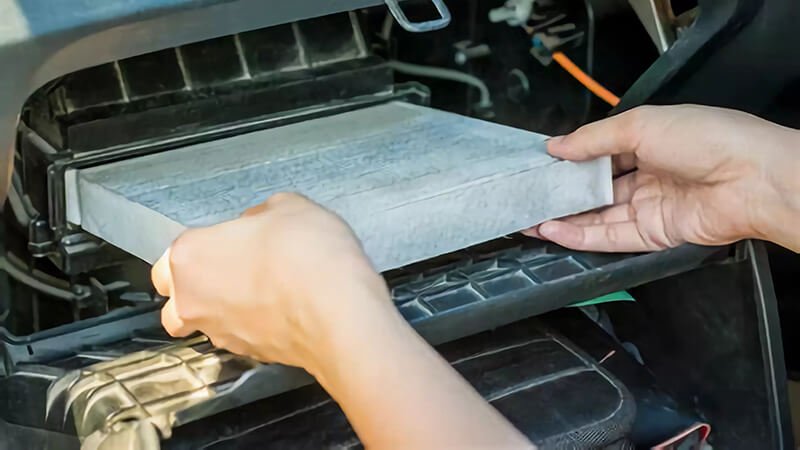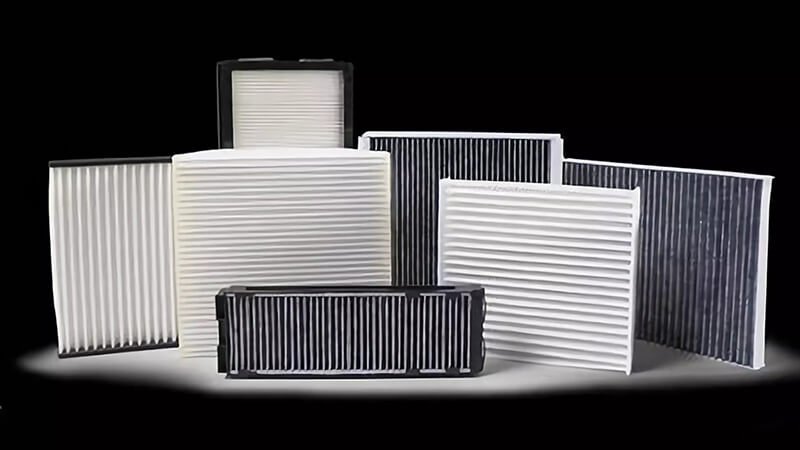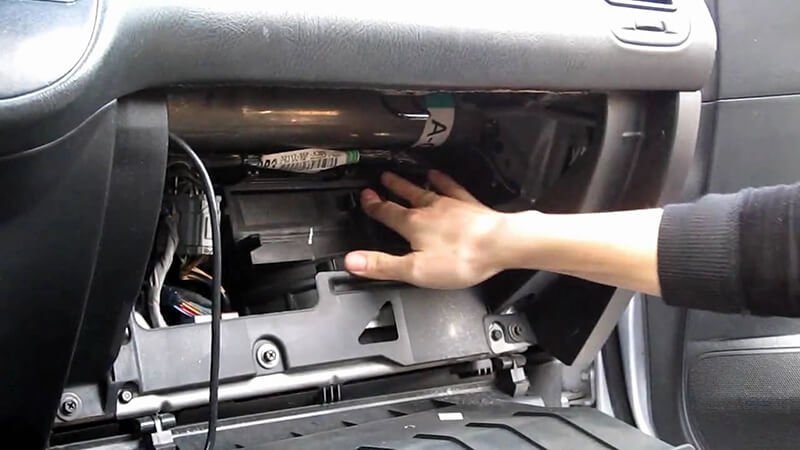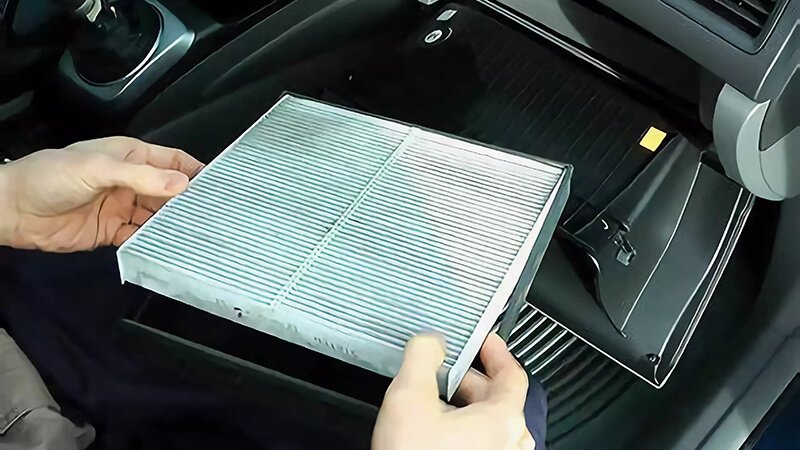Are you breathing clean air inside your car? Cabin air filters play a crucial role in ensuring the air you breathe is free from harmful particles. Let’s uncover everything you need to know about this small but vital component.
Cabin air filters improve air quality inside your vehicle by removing dust, allergens, and pollutants. They protect your health and ensure your HVAC system works efficiently. Without them, you might be inhaling harmful contaminants.
Transition Paragraph: In this guide, we’ll explore whether you really need a cabin air filter, how to choose one, and how often to replace it for optimal performance.

Do you really need a cabin air filter in your car?
Breathing clean air isn’t just a luxury—it’s a necessity. Imagine driving in heavy traffic without a filter to block pollutants. You might be exposing yourself to harmful particles daily.
Yes, a cabin air filter is essential. It filters out pollen, dust, and pollutants, improving air quality and reducing allergy symptoms. It also prevents debris from clogging your HVAC system, ensuring efficient operation.
Dive deeper: Why cabin air filters are essential
Cabin air filters are often underestimated, but their importance cannot be overstated. Without one, your vehicle’s air circulation system draws in unfiltered air from the outside, which can be polluted by exhaust fumes, dust, and allergens. For drivers in urban areas or regions with high levels of smog or pollen, the impact is even more significant.
Key benefits include:
- Health Protection: A cabin air filter acts as a barrier, blocking contaminants like pollen, mold spores, and fine dust particles1. These can trigger allergies, asthma, and other respiratory issues.
- HVAC Efficiency: A clean filter ensures your car’s heating and cooling systems operate smoothly. Without it, debris can clog vents2, causing uneven air distribution and stress on the system.
- Long-Term Savings: Replacing a damaged HVAC system is far costlier than maintaining a clean cabin air filter3.
In short, a cabin air filter isn’t just a comfort feature—it’s a health and vehicle performance essential.

How do you know which cabin air filter to buy?
Choosing the right cabin air filter might seem overwhelming with so many options. Don’t worry—there’s a simple way to find the perfect one for your car.
To choose the right filter, check your car’s manual for specifications4. Consider options like particulate or charcoal filters for added benefits. Certified filters ensure quality and compatibility.
Dive deeper: Factors to consider when buying
Not all cabin air filters are created equal. Making the right choice depends on understanding your vehicle, driving conditions, and personal needs. Here are key considerations:
-
Compatibility: Always start by checking your vehicle’s manual5. Using a filter designed for another model can result in poor performance or even damage.
-
Filter Types:
- Particulate Filters: Ideal for general use, they block dust, pollen, and other large particles.
- Charcoal Filters: These offer additional benefits by neutralizing odors and filtering out harmful gases like carbon monoxide.
- High-Efficiency Filters: Premium options that capture microscopic particles and allergens, perfect for drivers with respiratory conditions.
-
Driving Conditions:
- Urban Areas: If you often drive in cities with high pollution, opt for filters with activated carbon6.
- Rural or Dusty Areas: A heavy-duty particulate filter will better withstand dust and debris.
-
Brand and Certification: Look for filters with ISO certifications or OEM endorsements7 to ensure quality. Reputable brands often offer better warranties and customer support.
-
Budget vs. Longevity: While premium filters cost more upfront, their superior performance and lifespan make them more cost-effective in the long run.
Taking the time to evaluate these factors will ensure your investment improves both air quality and driving comfort.
%[Choosing a Cabin Filter](Luxury car cabin filter replacement, showcasing clean air quality "Different Filter Options")
Can I run my AC without a cabin air filter?
Running your car’s AC without a cabin air filter might seem harmless, but it can lead to several problems for your vehicle and health.
Technically, you can run your AC without a cabin air filter, but it’s not advisable. Without it, debris can clog your HVAC system, reduce airflow, and allow pollutants into your cabin8.
Dive deeper: Risks of operating without a filter
Operating your AC without a cabin air filter exposes your vehicle and yourself to unnecessary risks. Here’s a breakdown of the consequences:
- Damage to HVAC Components: The cabin air filter prevents dust, leaves, and other debris from entering your car’s HVAC system9. Without it, these materials can accumulate and cause blockages, reducing airflow and damaging the fan motor and evaporator.
- Increased Maintenance Costs: Cleaning or repairing clogged HVAC systems10 is far more expensive than replacing a filter.
- Poor Air Quality: Dust, pollen, and pollutants enter the cabin11, impacting your health, especially if you suffer from allergies or respiratory conditions.
- Shorter HVAC Lifespan: The added strain on the system from debris buildup can cause premature wear, reducing the lifespan of your HVAC components.
Simply put, skipping the cabin air filter is a false economy. It may save you money initially but can lead to higher repair bills and health issues over time.

How often should cabin air filters be changed?
Have you checked your cabin air filter recently? Neglecting to replace it on time can lead to poor air quality and system inefficiencies.
Cabin air filters should be replaced every 12,000 to 15,000 miles12 or as recommended by your car’s manufacturer. However, driving conditions like pollution or frequent off-road travel may require more frequent changes.
Dive deeper: When and why to replace filters
The lifespan of a cabin air filter depends on various factors, including driving habits and environmental conditions. Here’s what to consider:
-
Signs of a Dirty Filter:
- Reduced airflow from the vents.
- Musty or unpleasant odors in the cabin13.
- Increased allergic reactions or respiratory discomfort.
-
Driving Conditions:
- Urban Traffic: Frequent exposure to pollution and stop-and-go traffic may clog filters faster.
- Dusty Roads: Rural or off-road driving causes filters to accumulate dirt quickly.
- High Pollen Seasons: If you live in areas with heavy pollen, you may need to replace the filter more often14.
-
Manufacturer Recommendations: Always follow the replacement schedule outlined in your vehicle’s manual15. While some filters claim extended life, regular inspection ensures optimal performance.
Replacing your cabin air filter as part of routine maintenance ensures your HVAC system operates efficiently and your car provides clean, breathable air.

Conclusion
Cabin air filters are not just accessories; they’re essential for maintaining clean air, protecting your health, and ensuring your vehicle’s HVAC system runs smoothly. By understanding their role, choosing the right type, and replacing them on time, you’ll enjoy a more comfortable and healthier driving experience. Don’t take clean air for granted—invest in a quality cabin air filter today.
-
Learn how cabin air filters protect you from allergens and pollutants. ↩
-
Understand the risks of clogged vents and how to maintain smooth HVAC operation. ↩
-
Find out how regular maintenance saves you money in the long run. ↩
-
Learn how to find the correct cabin air filter specifications for your car. ↩
-
Discover the additional benefits of using charcoal cabin air filters. ↩
-
Identify the most effective filters for heavily polluted urban areas. ↩
-
Ensure you choose filters with proven quality and compatibility for your vehicle. ↩
-
Learn how clogged systems affect vehicle performance and air quality. ↩
-
Understand the role of the filter in preventing debris from entering the HVAC system. ↩
-
Find out the cost differences and benefits of regular filter replacement. ↩
-
Explore the health risks associated with poor air quality inside vehicles. ↩
-
Discover the standard mileage intervals for changing cabin air filters. ↩
-
Understand how dirty filters contribute to unpleasant smells and how to fix the issue. ↩
-
Learn how pollen impacts air filters and when to replace them during allergy seasons. ↩
-
Get detailed insights from your vehicle’s manual on filter replacement schedules. ↩













